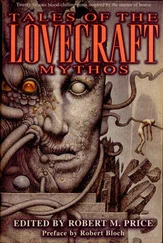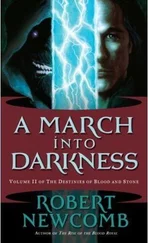Robert Pirsig - Lila. An Inquiry Into Morals
Здесь есть возможность читать онлайн «Robert Pirsig - Lila. An Inquiry Into Morals» весь текст электронной книги совершенно бесплатно (целиком полную версию без сокращений). В некоторых случаях можно слушать аудио, скачать через торрент в формате fb2 и присутствует краткое содержание. Жанр: Современная проза, на английском языке. Описание произведения, (предисловие) а так же отзывы посетителей доступны на портале библиотеки ЛибКат.
- Название:Lila. An Inquiry Into Morals
- Автор:
- Жанр:
- Год:неизвестен
- ISBN:нет данных
- Рейтинг книги:3 / 5. Голосов: 1
-
Избранное:Добавить в избранное
- Отзывы:
-
Ваша оценка:
- 60
- 1
- 2
- 3
- 4
- 5
Lila. An Inquiry Into Morals: краткое содержание, описание и аннотация
Предлагаем к чтению аннотацию, описание, краткое содержание или предисловие (зависит от того, что написал сам автор книги «Lila. An Inquiry Into Morals»). Если вы не нашли необходимую информацию о книге — напишите в комментариях, мы постараемся отыскать её.
Lila. An Inquiry Into Morals — читать онлайн бесплатно полную книгу (весь текст) целиком
Ниже представлен текст книги, разбитый по страницам. Система сохранения места последней прочитанной страницы, позволяет с удобством читать онлайн бесплатно книгу «Lila. An Inquiry Into Morals», без необходимости каждый раз заново искать на чём Вы остановились. Поставьте закладку, и сможете в любой момент перейти на страницу, на которой закончили чтение.
Интервал:
Закладка:
As he reflected further on that wall he thought about how all paths within it seemed to lead to Franz Boas, who in 1899 had become Columbia University’s first professor of anthropology, and had so completely dominated his field that most of the anthropology in America today still seems to lie in his shadow. Students working within his intellectual domain became famous: Margaret Mead, Ruth Benedict, Robert Lowie, Edward Sapir, Alfred Kroeber, Paul Radin and others. They produced a flowering of anthropological literature so great and so rich that their work is sometimes mistaken for all of cultural anthropology. The key to getting through the wall lay in re-examining the philosophical attitudes of Boas himself.
Boas' training was in mathematics and physics in nineteenth-century Germany. His influence lay not in the establishment of a single particular theory of anthropology but in the establishment of a method of anthropological investigation. This method followed the principles of the hard science he had been trained in.
Margaret Mead said, He feared premature generalization like the plague, and continually warned us against it. Generalization should be based on the facts and only on the facts.
It is indubitable that science was his religion, Kroeber said. He called his early convictions materialistic. Science could tolerate nothing "subjective"; value judgments — and by infection even values considered as phenomena — must be absolutely excluded.
On one slip, headed Goldschmidt, Phædrus copied down the statement that This empiricism, this concern with fact, with detail, with preserving the record, Boas transmitted to his students and to anthropology. It is so major an element in anthropological thinking that the term "armchair anthropologist" is one of opprobrium, and two generations later we still insist on field work as a requisite to any claim for anthropological competence.
By the time Phædrus finished reading about Boas he was confident he’d identified the source of the immune system he was up against, the same immune system that had so rejected Dusenberry’s views. It was classical nineteenth-century science and its insistence that science is only a method for determining what is true and not a body of beliefs in itself. There have been many schools of anthropological theory other than Boas' but Phædrus could find none that opposed him on the matter of scientific objectivity.
As he read on, Phædrus could see more and more of what the negative effects of this application of Victorian science to cultural anthropology had been. What had happened was that Boas, by superimposing the criteria of the physical sciences upon cultural anthropology, had shown that not only were the theories of the armchair anthropologists unsupported by science but that any anthropological theory was unsupported by science, since it could not be proved by the rigorous methods of Boas' own field of physics. Boas seemed to think that someday such a theory would emerge out of the facts but it’s been nearly a century since Boas had those expectations and it hasn’t emerged yet. Phædrus was convinced it never would. Patterns of culture do not operate in accordance with the laws of physics. How are you going to prove in terms of the laws of physics that a certain attitude exists within a culture? What is an attitude in terms of the laws of molecular interaction? What is a cultural value? How are you going to show scientifically that a certain culture has certain values?
You can’t.
Science has no values. Not officially. The whole field of anthropology was rigged and stacked so that nobody could prove anything of a general nature about anybody. No matter what you said, it could be shot down any time by any damn fool on the basis that it wasn’t scientific.
What theory existed was marked by bitter quarrels over differences that were not anthropological at all. They were almost never quarrels about accuracy of observation. They were quarrels about abstract meanings. It seemed almost as though the moment anyone said anything theoretical it was a signal for the commencement of an enormous dog fight over differences that could not be resolved with any amount of anthropological information.
The whole field seemed like a highway filled with angry drivers cursing each other and telling each other they didn’t know how to drive when the real trouble was the highway itself. The highway had been laid down as the scientific objective study of man in a manner that paralleled the physical sciences. The trouble was that man isn’t suited to this kind of scientific objective study. Objects of scientific study are supposed to hold still. They’re supposed to follow the laws of cause and effect in such a way that a given cause will always have a given effect, over and over again. Man doesn’t do this. Not even savages.
The result has been theoretical chaos.
Phædrus liked a description he read in a book called Theory in Anthropology by Robert Manners and David Kaplan of Brandeis University. Scattered throughout the anthropological literature they wrote, are a number of hunches, insights, hypotheses and generalizations. They tend to remain scattered, inchoate, and unrelated to one another, so that they often get lost or are forgotten. The tendency has been for each generation of anthropologists to start afresh.
Theory building in cultural anthropology comes to resemble slash-and-burn agriculture, they said, where the natives return sporadically to old fields grown over by bush and slash and burn and plant for a few years.
Phædrus could see the slash and burn everywhere he looked. Some anthropologists were saying a culture is the essence of anthropology. Some were saying there isn’t any such thing as a culture. Some were saying it’s all history, some said it’s all structure. Some said it’s all function. Some said it was all values. Some, following Boas' scientific purity, said there were no values at all.
That idea that anthropology has no values Phædrus marked down in his mind as the spot. That was the place where the wall could best be breached. No values, huh? No Quality? This was the point of focus where he could begin an attack.
What many were trying to do, evidently, was get out of all these metaphysical quarrels by condemning all theory, by agreeing not to even talk about such theoretical reductionist things as what savages do in general. They restricted themselves to what their particular savage happened to do on Wednesday. That was scientifically safe all right — and scientifically useless.
The anthropologist Marshall Sahlins. wrote, The very term "universal" has a negative connotation in this field because it suggests the search for broad generalization that has virtually been declared unscientific by twentieth-century academic, particularistic American anthropology.
Phædrus guessed anthropologists thought they had kept the field scientifically pure by this method, but the purity was so constrictive it had all but strangled the field. If you can’t generalize from data there’s nothing else you can do with it either.
A science without generalization is no science at all. Imagine someone telling Einstein, You can’t say E=mc 2. It’s too general, too reductionist. We just want the facts of physics, not all this high-flown theory. Cuckoo. Yet, that’s what they were saying in anthropology.
Data without generalization is just gossip. And as Phædrus continued on and on that seemed to be the status of what he was reading. It filled shelf after shelf with volume after dusty volume about this savage and that savage, but as far as he could see, anthropology, the science of man, had had almost no guiding effect on man’s activities in this scientific century.
Читать дальшеИнтервал:
Закладка:
Похожие книги на «Lila. An Inquiry Into Morals»
Представляем Вашему вниманию похожие книги на «Lila. An Inquiry Into Morals» списком для выбора. Мы отобрали схожую по названию и смыслу литературу в надежде предоставить читателям больше вариантов отыскать новые, интересные, ещё непрочитанные произведения.
Обсуждение, отзывы о книге «Lila. An Inquiry Into Morals» и просто собственные мнения читателей. Оставьте ваши комментарии, напишите, что Вы думаете о произведении, его смысле или главных героях. Укажите что конкретно понравилось, а что нет, и почему Вы так считаете.











